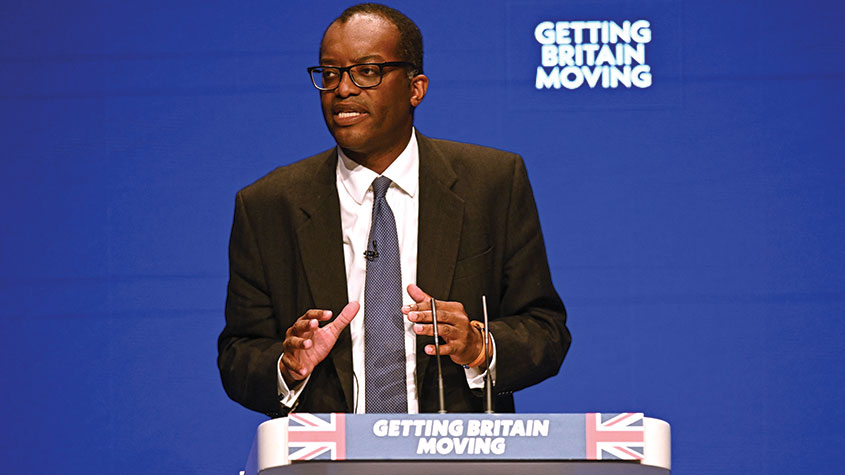Labour defeats a Remainer rebellion
Jeremy Corbyn has faced down a challenge spearheaded by his deputy, Tom Watson, for Labour to signal its backing for a second Brexit referendum.

Get the latest financial news, insights and expert analysis from our award-winning MoneyWeek team, to help you understand what really matters when it comes to your finances.
You are now subscribed
Your newsletter sign-up was successful
Want to add more newsletters?

Twice daily
MoneyWeek
Get the latest financial news, insights and expert analysis from our award-winning MoneyWeek team, to help you understand what really matters when it comes to your finances.

Four times a week
Look After My Bills
Sign up to our free money-saving newsletter, filled with the latest news and expert advice to help you find the best tips and deals for managing your bills. Start saving today!

Jeremy Corbyn has faced down a challenge spearheaded by his deputy, Tom Watson, for Labour to "signal its unequivocal backing for a second Brexit referendum in the forthcoming European election campaign", says Heather Stewart in The Guardian. On Tuesday, Labour's ruling National Executive Committee announced that its manifesto would be in line with its longstanding policy.
That means a "confirmatory referendum" only on what the Labour leader calls a damaging Tory Brexit, says Jim Pickard in the Financial Times, not on his preferred softer version of Brexit, which would involve a permanent customs union with the EU.
Labour has "always been split" between loyalty to its pro-European roots and fear of alienating working-class Leave voters, says James Blitz, also in the FT. But this time there are also differences over the party's tactical goal in the European elections. Watson says Labour's main goal must be to defeat Nigel Farage's Brexit party, which it won't do if it continues to "sit on the fence" over Brexit.
MoneyWeek
Subscribe to MoneyWeek today and get your first six magazine issues absolutely FREE

Sign up to Money Morning
Don't miss the latest investment and personal finances news, market analysis, plus money-saving tips with our free twice-daily newsletter
Don't miss the latest investment and personal finances news, market analysis, plus money-saving tips with our free twice-daily newsletter
However, some Corbynites see a Brexit Party victory as an opportunity, says Will Hutton in The Observer. It would lead to a eurosceptic nationalist, probably Boris Johnson, taking over from May in the summer. He would argue for a no-deal Brexit, split the parliamentary Tory party and pave the way for a Labour election victory.
Given the disarray among the main parties and the fact that six million signed a petition for Brexit to be cancelled, "I find it remarkable that Change UK, the Lib Dems and the Greens have not made common cause to create an anti-Brexit alliance in what is effectively a proxy referendum' on 23 May", says William Hague in The Daily Telegraph. The election now stands to be a reassertion of Brexit. This failure to unite also suggests that "if and when" a realignment of parties takes place", Labour and Tories will pull left and right, with no real alternative left in the centre.
Get the latest financial news, insights and expert analysis from our award-winning MoneyWeek team, to help you understand what really matters when it comes to your finances.

Emily has worked as a journalist for more than thirty years and was formerly Assistant Editor of MoneyWeek, which she helped launch in 2000. Prior to this, she was Deputy Features Editor of The Times and a Commissioning Editor for The Independent on Sunday and The Daily Telegraph. She has written for most of the national newspapers including The Times, the Daily and Sunday Telegraph, The Evening Standard and The Daily Mail, She interviewed celebrities weekly for The Sunday Telegraph and wrote a regular column for The Evening Standard. As Political Editor of MoneyWeek, Emily has covered subjects from Brexit to the Gaza war.
Aside from her writing, Emily trained as Nutritional Therapist following her son's diagnosis with Type 1 diabetes in 2011 and now works as a practitioner for Nature Doc, offering one-to-one consultations and running workshops in Oxfordshire.
-
 Should you buy an active ETF?
Should you buy an active ETF?ETFs are often mischaracterised as passive products, but they can be a convenient way to add active management to your portfolio
-
 Power up your pension before 5 April – easy ways to save before the tax year end
Power up your pension before 5 April – easy ways to save before the tax year endWith the end of the tax year looming, pension savers currently have a window to review and maximise what’s going into their retirement funds – we look at how
-
 No peace dividend in Trump's Ukraine plan
No peace dividend in Trump's Ukraine planOpinion An end to fighting in Ukraine will hurt defence shares in the short term, but the boom is likely to continue given US isolationism, says Matthew Lynn
-
 Europe’s new single stock market is no panacea
Europe’s new single stock market is no panaceaOpinion It is hard to see how a single European stock exchange will fix anything. Friedrich Merz is trying his hand at a failed strategy, says Matthew Lynn
-
 Was Margaret Thatcher great for Britain?
Was Margaret Thatcher great for Britain?The 'Iron Lady’ would be celebrating her 100th birthday this month. Margaret Thatcher rose to power in 1979 as the first ever female prime minister and was one of the most controversial leaders in history, but how did her policies shape today’s finances?
-
 Britain’s inflation problem
Britain’s inflation problemInflation in the UK appears to be remaining higher for longer when compared with similar rich countries. Why? And when can we expect a return to normal? Simon Wilson reports.
-
 It’s been 16 years, but the UK economy finally has a chance
It’s been 16 years, but the UK economy finally has a chanceOpinion The UK economy has been dealing with one crisis after another since 2007. Policymakers now have a chance to fix some of the underlying problems holding back growth.
-
 Eurozone inflation hits 10.7% in October
Eurozone inflation hits 10.7% in OctoberNews Inflation across the eurozone hit 10.7% in October. What does it mean for your money?
-
 The “plan for growth”: what Truss and Kwarteng got right
The “plan for growth”: what Truss and Kwarteng got rightOpinion The Tories’ “plan for growth” has got off to a bad start, but their reforms can still transform Britain
-
 Kwasi Kwarteng U-turns on top tax rate decision
Kwasi Kwarteng U-turns on top tax rate decisionNews Kwasi Kwarteng has U-turned on his top tax rate reduction announced in his mini-Budget at the end of September.